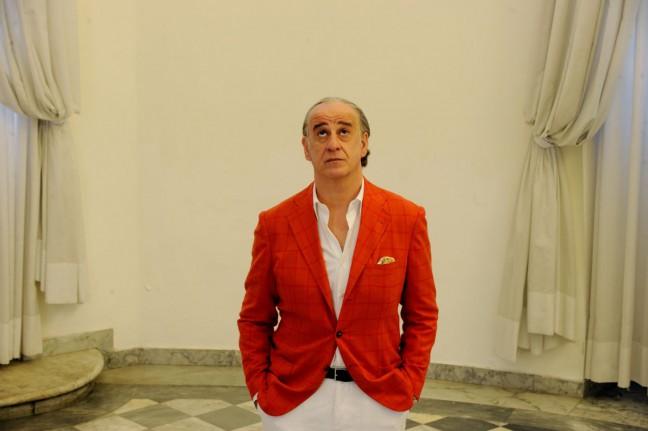Pristinely depicting the artistic grandeur of Rome, the Oscar-nominated Italian film “The Great Beauty” (“La Grande Bellezza”) does not fail to live up to its prestigious title.
Although the film is far from concise, dragging on for 142 minutes with a plot and protagonist not introduced until approximately the 20-minute mark, a focused version of the film would not have had the same perceptive effect and most definitely would not have been as highly regarded by the artistically-appreciative public. Enlaced with a troupe of complex personalities, an introspective storyline, a profound script and an exceptional screenplay highlighting Rome’s splendor, all of the film’s features prove to be necessary in optimizing its ability to call attention to life’s overlooked virtues, quite literally making the picture a “great beauty” in every sense.
Rather than delving directly into the main storyline, the film begins with a scene centered around a group of Japanese tourists. Gazing out into the Roman skyline, one tourist collapses, overwhelmed by the magic of the city. The camera then pans to the opposite side of the coliseum, focusing in on an elaborate local rooftop party, an imperative contrast in how Rome is viewed by tourists and locals.
The rooftop festivities honor the 65th birthday of our protagonist, Jep Gambardella (Toni Servillo, “È stato il figlio”), who narrates the film with critique, insightfulness, personality and a dry, yet utterly hilarious sense of humor. Jep is a writer who has long been living off the success of his one novel, “The Human Apparatus,” which he wrote at the age of 25. The prosperity of his single novel has allowed him to charm his way into Roman high life, carving out a place for himself as an acclaimed public figure. As a socialite, his life consists predominately of parties, sex, booze and self-absorbed conversations in a circle of shallow friends.
However, a few days prior to the festivities, the sudden death of a former lover and the proposed question of why he has yet to write another book prompt Jep to realize that, though his elite stature may appear desirable, masked beneath his seemingly perfect high-end life is emptiness, lack of inspiration and growing discontent. Thus, he sets out to find that which Rome has failed to give him as an elite, or more so, that which he has overlooked and taken for granted as an elite. He embarks on a journey to uncover a sense of authenticity and inducement hidden within the ancient cobblestone streets of the city: that which sparks enchantment in the eyes of the tourists.
In doing so, Jep is ultimately searching for happiness and motivation, concepts that have been buried and lost in his shallow and self-indulged lifestyle. In veering from the ways of his daily life, Jep encounters a multitude of people, all of whom come and go. Though these other characters are ephemeral, leaving the story centered on Jep, they all serve a strong purpose: giving Jep further insight into the ways of the world and helping him to carry on in his pilgrimage to find inspiration.
Aside from emphasizing Rome’s beauty in a profound plotline, the film accents the city’s ravishing facets through extraordinary camerawork and director Paolo Sorrentino’s (“This Must be the Place”) ability to perfectly illustrate every last detail of every last frame. Sorrentino and crew incorporate a series of scenic landscapes, historic gems and artistic treasures into the film. Moreover, they breathe life into the stuffy Roman high class, carefully piecing together vibrant, pulsing party scenes, while also creating a darkening shadow via motifs of death and failure. The interlacing of these literary devices add a new artistic dimension to the film and the city. This makes Rome appear as just as much a “character” as the actors do themselves.
Although Jep may be desensitized to the magic of Rome, audiences will be overcome with its magic, as “La Grande Bellezza” plunges them into a whirlwind of “great beauty” that the city and, furthermore, life, has to offer.


